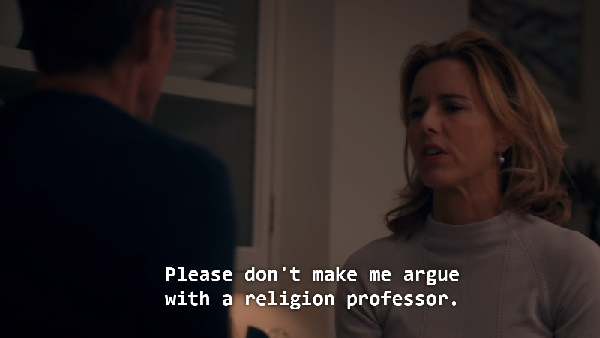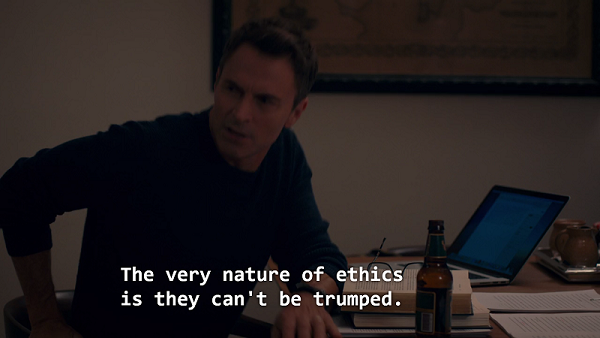[ by Charles Cameron — i’d like to know more around a fly-by comment re Rex Tillerson — autism, Japanese tantrism, Medusa — any takers? ]
.
The allegation is that State Department employees, some of them, were instructed not to make eye contact with new State boss Rex Tillerson. That’s from WaPo:
Most of his interactions are with an insular circle of political aides who are new to the State Department. Many career diplomats say they still have not met him, and some have been instructed not to speak to him directly — or even make eye contact.
**
Gaze is a fascinating business.
When I came back to the UK after living in the US for a couple of decades, my mother was appalled by my tendency to look her in the eye when speaking to her. She told me that you should look away from the person you are addressing, to avoid shaming them by closely observing their reactions to what you’re saying, but should then watch them while they (with eyes averted from you) responded, so as to catch the nuances of their response. Your interlocutor thus gains precious moments in which to modify the immediacy of their response to the suitable response of their choosing. This, I imagine, incoudes but may not be limited to the very rapid, easily missed facial responses knoan as microexpressions.
I by contrast like the direct gaze, and think of it as a sign of authenticity or perhaps earnestness.
**
Investgations of those on the autism spectrum (somewhere, at some time, likely recently and in a specific population) reveals ASD subjects “shifted their gaze away from a speaker earlier than the control groups.”
Eye contact, or lack of it, can have enormously strong affective implications, as we see in this example taken from Sophocles‘ Antigone:
The stage ‘etiquette’ of Attic tragedy calls for actors/characters visually to acknowledge one another or the Chorus before establishing verbal contact. The title character of Sophocles’ Antigone flouts this custom to interesting effect by keeping her gaze lowered to the ground after the guard, having caught her in the forbidden act of burying her brother, leads her back into the playing space. The Chorus of Theban elders obliquely acknowledge Antigone’s presence at 376, expres sin their consternation at the sight of ‘this supernatural portent’. They address her directly as child of Oedipus at 379–80. But Antigone remains unresponsive, reacting neither to the Chorus nor to the guard’s announcement a few lines later that ‘this is the one who did the deed’ (384). Instead she keeps her gaze fixed on the ground and stands silently by for over 65 lines, while the guard explains to Creon and the Chorus how she was captured. Readers of Sophocles’ play become aware of Antigone’s earthbound gaze only retrospectively at 441, where Creon addresses her with a brusque ‘Hey you, the one bowing your head to the ground …’
The three sacred treasurs of Japan are presented to the Emperor during the Japanese equivalent of coronation — during a tantric ceremonial in which the Emperor is united with his Sun Goddess and originating ancestor, Amaterasu Omikami — see:
Robert S. Ellwood, The Feast of Kingship: Accession Ceremonies in Ancient Japan
D. C. Holtom, Japanese Enthronement Ceremonies: With an Account of the Imperial Regalia
And famously, Medusa must not be looked upon directly, lest one be turned into stone. It transpires that Medusa was once a beauty indeed to be gazed upon. In the words of Dryden‘s Ovid:
Medusa once had charms; to gain her love
A rival crowd of envious lovers strove.
They, who have seen her, own, they ne’er did trace
More moving features in a sweeter face.
Yet above all, her length of hair, they own,
In golden ringlets wav’d, and graceful shone.
Her Neptune saw, and with such beauties fir’d,
Resolv’d to compass, what his soul desir’d.
In chaste Minerva’s fane, he, lustful, stay’d,
And seiz’d, and rifled the young, blushing maid.
Athena’s gaze at this scene, and turning away of that gaze, is the topic of Ovid’s next lines:
The bashful Goddess turn’d her eyes away,
Nor durst such bold impurity survey;
But on the ravish’d virgin vengeance takes,
Her shining hair is chang’d to hissing snakes.
These in her Aegis Pallas joys to bear,
The hissing snakes her foes more sure ensnare,
Than they did lovers once, when shining hair.
And thus Medusa becomes the famous face which cannot be directly gazed upon in peril of being turned to stone:
That horrid head, which stiffens into stone
Those impious men who, daring death, look on.
so that:
Two hundred, by Medusa’s head were ston’d.
Medusa is killed only when Perseus observes her reflected in his polished shield:
But as he journey’d, pensive he survey’d,
What wasteful havock dire Medusa made.
Here, stood still breathing statues, men before;
There, rampant lions seem’d in stone to roar.
Nor did he, yet affrighted, quit the field,
But in the mirror of his polish’d shield
Reflected saw Medusa slumbers take,
And not one serpent by good chance awake.
Then backward an unerring blow he sped,
And from her body lop’d at once her head.
The gore prolifick prov’d; with sudden force
Sprung Pegasus, and wing’d his airy course.
One wonders how much irony there is in that phrase, “not one serpent by good chance awake” — chance, or fate?
**
I don’t have direct access to the World Encyclopedia of Lowered Eyes and Direct Gazes, but there’s clearly plenty to read in social anthropology, depth psychology on the topic —
Scientific American, Eye Contact Can Be Overwhelming
Psychology Today, The Secrets of Eye Contact, Revealed
Jane Lydon, Eye Contact: Photographing Indigenous Australians
— and so forth
So I’ve titled this post Question time, hoping Zp readers will chime in with significant readeings that explore the reasons Tillerson may have requested no eye-contact — if in fact he did.
Because this whole post, and a flurry of activity on the web, hinges on a very short phrase in that WaPo piece:
some [diplomats] have been instructed not to speak to him directly — or even make eye contact
which presumably falls within the category RUMINT unoess otherwise corroborated by named and trustworthy sources.
Eye contact — any suggestions?










